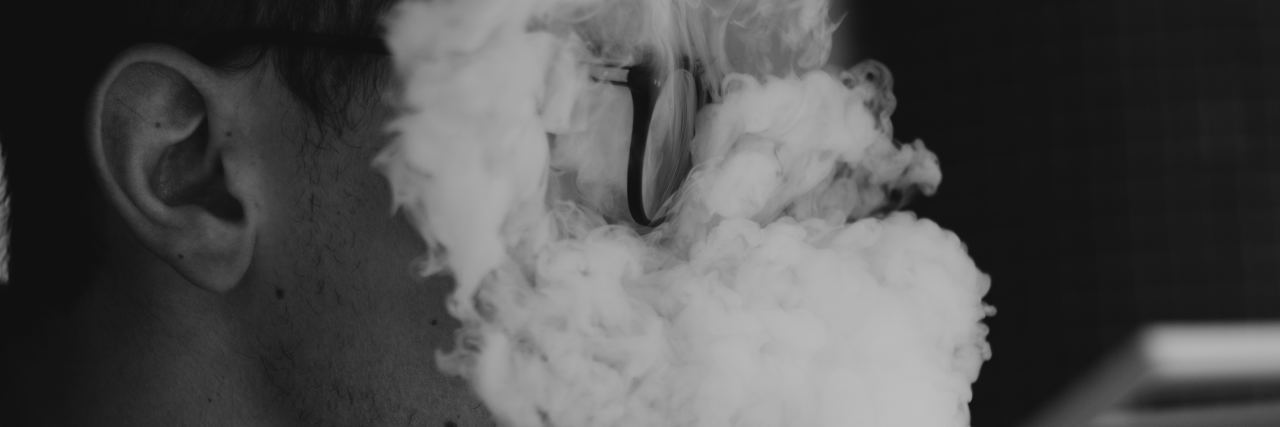World Bipolar Day was this week, and this is what I have this to say:
Bipolar is often seen as an awful disease that needs to be cured. The persistent suffering it inflicts on its victims is something no person should ever have to bear, we’re told. No one could possibly choose to live this way.
• What is Bipolar disorder?
I beg to differ.
Yes, living the bipolar life is often soul-crushing and the suffering can even lead to suicide, among other unenviable outcomes. Trust me, I know. There are few things as painful as experiencing the pure passion that comes with mania, the world momentarily coming into clarity — just to be knocked down into the bottomless depths of depression. Not to mention the never-ending uncertainty of what pole is telling the truth. Personally, I wouldn’t wish bipolar on anyone. Just like I wouldn’t wish any form of suffering on anyone.
That said, if offered a magic pill to “cure” me of my bipolar, I wouldn’t hesitate to flush it down the toilet. I’ve repeatedly asked others in the bipolar community whether or not they would take it and many of them (but not all) would do the same. And yet this perspective seems to be given a lot less attention in traditional “awareness” campaigns. Why? Why would anyone be shocked to hear this response? And why is the Bipolar Needs To Be Cured narrative insisted upon us instead? I don’t claim to speak for everyone but I do believe we need to be less close-minded.
You see, bipolar isn’t bad. Bipolar also isn’t good. It just is. It’s we the individuals who put meaning into it. At least in an ideal world. Unfortunately, our society coerces us into believing that bipolar is only bad. And any attempt to offer a more positive interpretation is taken as an offense or even worse “just our illness talking.” To be clear, I also don’t see bipolar as a gift. It is an identity. Bipolar is as part of me as my skin color or gender. But it’s not a special power nor is it something that makes me better than others. Even though there are times when I don’t want to be seen as “that bipolar guy,” I also don’t want to downplay what an important ingredient it is in the making of me, Rudy Caseres. It’s not something I want to grow out of and it’s certainly not something I want to be cured of. For me, to hate bipolar is to hate my skin color or to hate my gender. And hate is way too exhausting.
A comparison I like to make is with gay conversion therapy. Any reasonable person can see that this is psychological torture and based on the belief that a key element of your identity is bad and needs to be cleansed of for your own good. But if you talk to any of the people who perform gay conversion therapy, they will tell you it comes from a place of love and that homosexualtiy is a burden nobody should ever have to carry. That line of thinking can even convince gay people that homosexuality is indeed bad and a cure is the only hope to end their suffering. Hmmm… Obviously, the entire concept is absolutely abhorrent. It also meets the definition of a hate crime. But no one seems to bat an eye when this same concept is applied to bipolar. Am I missing something?
Even without a magic pill, I see many mental health advocates talk about “recovery” and how they are thankful to be “stable” or “high-functioning.” For the most part, I see this as virtue signaling that suggests to be accepted in a neurotypical society we need to act as “non-bipolar” as possible. This is similar to the dilemma autistic people face. Is it worth being myself and embracing my differences at the risk of being discriminated against by a society that sees me as sick and in need of fixing? The key difference is that they are a lot better at fighting to have their identities treated as such and not some scourge that should be erased for the benefit of all. If they can band together and demand to have their human rights respected without needing to disavow their identities why can’t we? Anyone?
The main point I want to stress in this essay is this: to live the bipolar life is to live a life of suffering. There’s no other way around it. At least not at the moment. Sure, meds can take the edge off some of the more undesirable aspects and finding non-judgmental people who get it can help immensely. But suffering — whether it’s suicidal depression, uncontrollable manic psychosis or the trauma resulting from forced psychiatric treatment — is still inevitable. There’s a silver lining, however. I truly believe no one can achieve greatness in their life without the presence of suffering. True, bipolar in of itself doesn’t make you a hero (or even brave) but just like any other form of adversity it has the power to. It also has the power to destroy us from within, not to mention destroy the lives of others. But it doesn’t have to.
Like I mentioned before: bipolar just is. So why not be positive and use bipolar to our advantage? Why run away from that which resides deep within? Bipolar may not completely define me but it’s without a doubt an accurate way of describing me. And that’s OK.
For all of the good and for all of the bad.
Photo by Itay Kabalo on Unsplash

